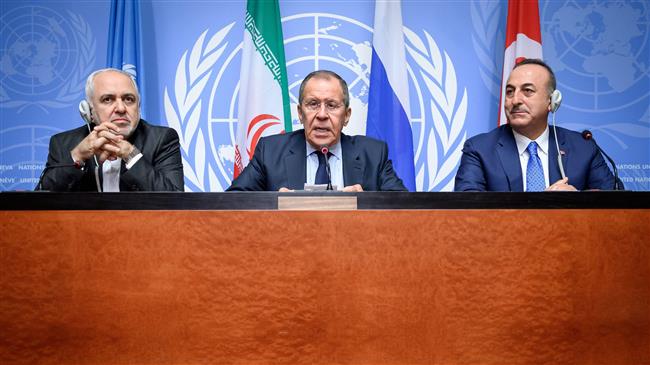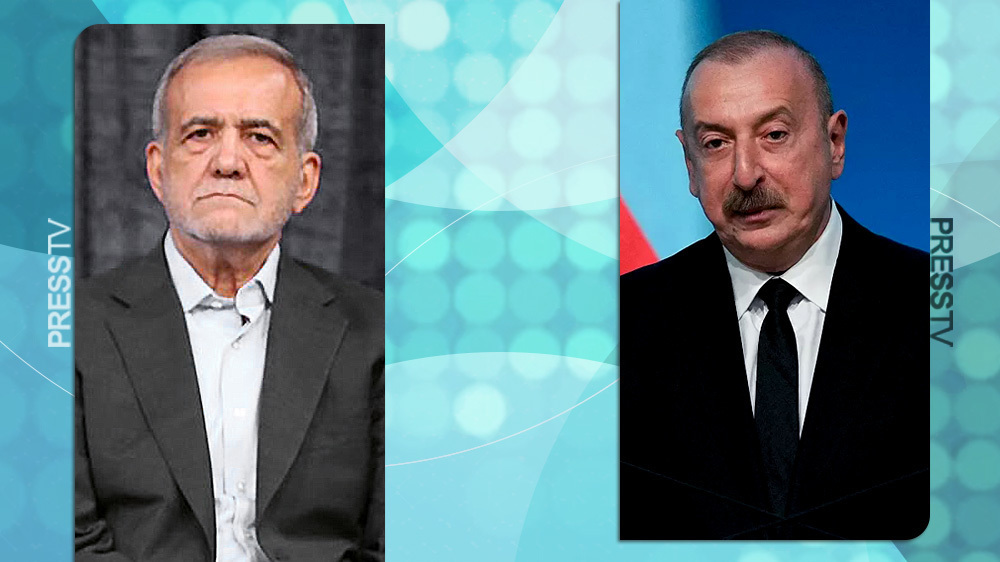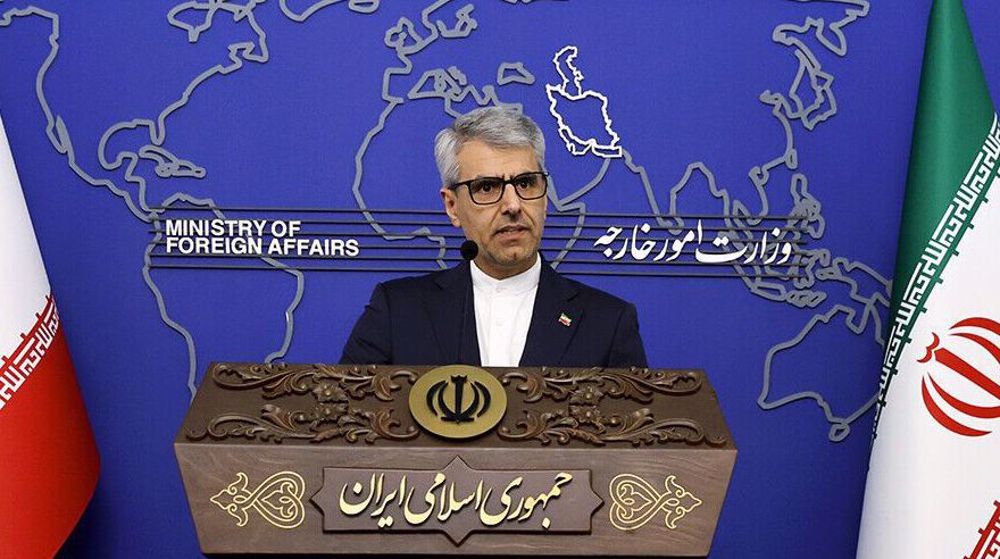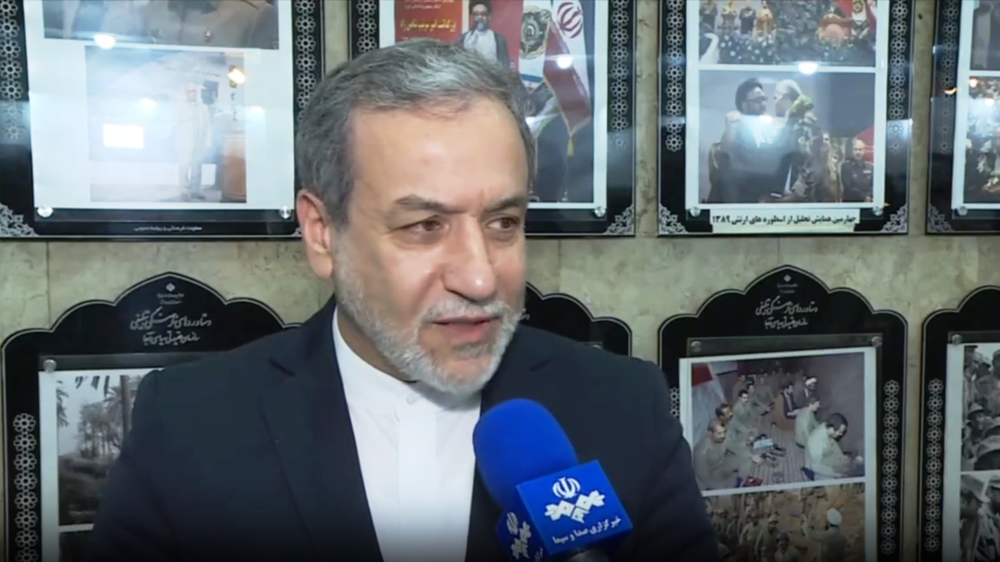FMs of Iran, Russia, Turkey stress consultations within Astana process as best solution to Syria crisis
The Iranian, Turkish and Russian foreign ministers have emphasized the need to continue consultations and coordination among the three guarantors of the Astana process as the most effective format for the settlement of the crisis in Syria.
The trilateral meeting between Iran’s Mohammad Javad Zarif, Russia’s Sergei Lavrov and Turkey’s Mevlut Cavusoglu was held via teleconference on Wednesday to discuss the latest developments in Syria and the region.
The three top diplomats conferred on a range of issues, including the situation in the militant-held province of Idlib in northwestern Syria, the Syria Constitutional Committee, the need for the lifting of unilateral sanctions amid the coronavirus pandemic, the humanitarian situation in Syria and repatriation of refugees to the Arab country.
They stressed that Syria’s independence, national sovereignty and territorial integrity must be safeguarded while emphasizing on the need to distinguish terrorists from opposition groups as the battle against militants would continue across the country.
In the meeting, the top Iranito diplomat, who earlier this week paid a visit to Syria where he held talks with President Bashar al-Assad and his counterpart Walid al-Muallem, touched on the latest developments in Idlib and reaffirmed the need to protect the war-torn country’s sovereignty while keeping anti-terror battles.
Zarif pointed to his recent consultations with United Nations special envoy for Syria Geir Pedersen and praised his efforts to facilitate intra-Syria talks within the framework of the Constitutional Committee. He also stressed the need for protecting the Committee’s independence and preventing any foreign interference in its activities.
Pointing to the ongoing coronavirus pandemic, Zarif said unilateral sanctions were seriously hampering Iran’s fight against the virus, and said the international community and the United Nations should shoulder the responsibility to help the removal of unilateral embargoes, alleviate the sufferings of the Syrian people and address the status of refugees in camps occupied by the US.
He also called for the immediate repatriation of Syrian refugees to their homeland and the importance to deliver humanitarian aid to the Syrian people.
The Iranian foreign minister also condemned Israel’s constant acts of aggression against Syrian territory as violation of the Arab country’s sovereignty and international law and a threat to regional security.
The Iranian, Russian and Turkish foreign ministers also emphasized the need for proceeding with trilateral consultations at all levels and holding the sixth summit of the Astana Process in Iran after the normalization of situation created by the coronavirus outbreak.
Turkey — along with Russia and Iran — entered two frameworks of Syria-focused negotiations that resulted into two agreements.
A first deal was signed in Kazakhstan’s capital Nur Sultan, formerly called Astana, arranging for the creation of de-escalation zones across Syria, including in parts of Idlib. The second one that came about in the Russian resort city of Sochi allowed Ankara to bring in a small number of forces to man the observation posts to reinforce de-escalation.
Ankara has, however, been found in default of both the deals by failing to separate terrorists from what it calls “moderate” opposition groups in the Idlib zone and by sending thousands of troops and heavy military hardware into the province in an unprecedented incursion to back the militants.
Israel preparing to stay in southern Lebanon after ceasefire: Report
Israeli pressure on Hamas ‘hardly helped’; swap deal necessary: Ex-Mossad chief
Far-right Israeli minister Ben-Gvir again storms al-Aqsa Mosque
Iran: Israel’s attack on journalists’ vehicle in Gaza amounts to ‘war crime’
VIDEO | Israel’s war spending
Palestine Action wins again
VIDEO | Palestinian Authority's blockade of Jenin refugee camp reaches third week
Dec. 25: ‘Axis of Resistance’ operations against Israeli occupation











 This makes it easy to access the Press TV website
This makes it easy to access the Press TV website